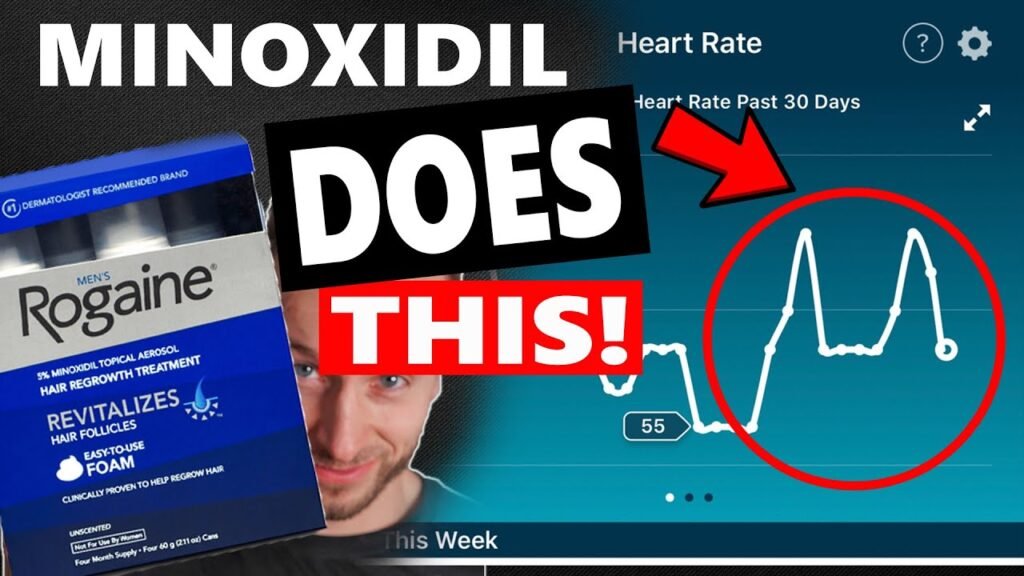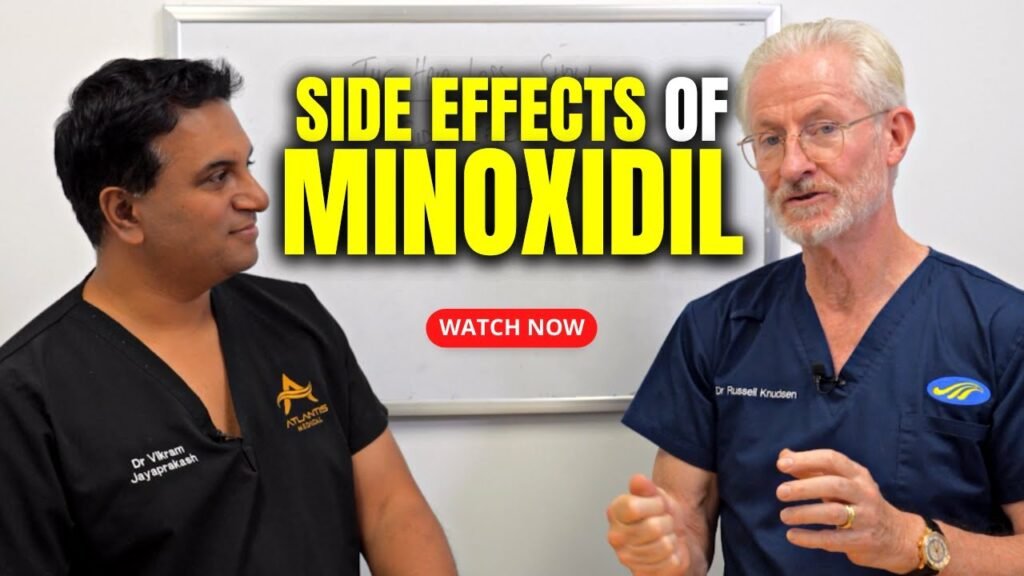Understanding Minoxidil: What Is It Used For?
Minoxidil is a widely recognized medication primarily used for treating hair loss. Originally developed as an oral medication for hypertension, its ability to stimulate hair growth was discovered as a side effect, leading to its topical application for hair loss management. Today, minoxidil is commonly used to combat conditions such as androgenetic alopecia, commonly known as male or female pattern baldness. By applying it directly to the scalp, users can potentially increase hair density and slow down the progression of hair thinning.
How Does Minoxidil Work?
The exact mechanism by which minoxidil promotes hair growth is not entirely understood, but it is believed to work by prolonging the anagen phase of the hair growth cycle. This phase is when the hair follicles are actively producing hair. Minoxidil may also increase blood flow to the scalp, providing hair follicles with more nutrients and oxygen, which are essential for healthy hair growth. It’s important to note that while minoxidil can be effective for many, results may vary from person to person, and continuous use is often necessary to maintain any new hair growth.
Who Can Benefit from Minoxidil?
Minoxidil is suitable for both men and women experiencing hair thinning and loss. Men typically use a 5% concentration, while women often use a 2% concentration to minimize the risk of side effects. Those who start using minoxidil at the early stages of hair loss tend to see better results. It is crucial for individuals considering minoxidil to consult with a healthcare professional to ensure it is appropriate for their specific condition, especially if they have underlying health issues or are taking other medications.
How Does Minoxidil Affect Heart Rate?
Minoxidil is primarily known as a topical treatment for hair loss, but it was originally developed as an oral medication for high blood pressure. This dual-purpose nature of minoxidil is due to its vasodilatory properties, which means it helps to widen blood vessels and improve blood flow. When minoxidil is used in its oral form, it can have significant effects on the cardiovascular system, including the heart rate. The widening of blood vessels can lead to a decrease in blood pressure, which may cause the heart to compensate by increasing its rate to maintain adequate blood circulation.
Mechanism of Action
The impact of minoxidil on heart rate is primarily linked to its mechanism of action. As a potent vasodilator, minoxidil relaxes the smooth muscles in blood vessels, leading to a reduction in peripheral vascular resistance. This drop in resistance often results in a reflex tachycardia, a condition where the heart rate increases in response to the lowered blood pressure. The body attempts to stabilize blood flow and ensure that vital organs receive enough oxygen and nutrients, thus causing the heart to beat faster. This effect is more pronounced when minoxidil is taken orally, and less so when applied topically for hair loss.
Considerations and Side Effects
While the topical application of minoxidil for hair growth generally has minimal systemic effects, those using oral minoxidil should be aware of potential cardiovascular side effects. An increased heart rate, or tachycardia, can lead to symptoms such as palpitations, dizziness, or chest discomfort. In some cases, healthcare providers may prescribe a beta-blocker alongside oral minoxidil to mitigate these heart-related side effects by helping to control the heart rate. It is crucial for patients to discuss their medical history and any existing cardiovascular conditions with their healthcare provider before starting treatment with oral minoxidil.
Common Side Effects of Minoxidil on the Cardiovascular System
Minoxidil, widely recognized for its role in treating hair loss, can have significant effects on the cardiovascular system. One of the most commonly reported side effects is an increase in heart rate, known as tachycardia. This occurs because minoxidil acts as a vasodilator, which means it relaxes blood vessels, leading to a drop in blood pressure. In response, the heart compensates by beating faster to maintain adequate blood flow throughout the body. For individuals with pre-existing heart conditions, this side effect can be particularly concerning and warrants close monitoring by healthcare professionals.
Another notable cardiovascular side effect of minoxidil is fluid retention, which can lead to edema, or swelling, particularly in the extremities. This is because minoxidil can cause the body to retain sodium and water, which may increase the volume of blood circulating through the vessels. In some cases, this can exacerbate conditions like congestive heart failure, as the heart may struggle to pump the increased volume of fluid efficiently. Patients experiencing significant swelling or rapid weight gain should seek medical attention, as these could be signs of worsening cardiovascular issues.
Palpitations are also frequently reported among users of minoxidil, manifesting as sensations of skipped heartbeats or fluttering in the chest. These palpitations may be linked to the increased heart rate and fluid retention caused by the medication. While often benign, persistent or severe palpitations should be evaluated by a healthcare provider to rule out any serious underlying heart conditions. Individuals using minoxidil are advised to be vigilant for any unusual cardiovascular symptoms and report them promptly to their doctor to ensure safe and effective use of the medication.
Identifying the Risks: Who Should Avoid Minoxidil?
Minoxidil is a popular treatment for hair loss, but its crucial to understand that it isnt suitable for everyone. Individuals with specific health conditions or those on certain medications should exercise caution. People with heart conditions, such as congestive heart failure or a history of heart attacks, should consult their healthcare provider before using minoxidil, as it can potentially affect heart function and blood pressure.
Pre-existing Medical Conditions
Those with skin conditions or scalp issues may also need to avoid minoxidil. If you have conditions like psoriasis, eczema, or sunburn on the scalp, applying minoxidil could exacerbate irritation or cause unwanted side effects. Additionally, individuals with allergies to minoxidil or any of its inactive ingredients should steer clear of the product to prevent allergic reactions.
Demographic Considerations
Minoxidil is not recommended for pregnant or breastfeeding women. The effects of minoxidil on unborn babies or nursing infants are not well-studied, so its best to avoid use during these periods. Similarly, children and adolescents under the age of 18 should not use minoxidil unless specifically directed by a healthcare provider, as its safety and efficacy have not been established for this age group.
Before starting any new treatment, including minoxidil, its essential to consult with a healthcare professional to discuss your medical history and potential risks. This ensures that the treatment is safe and suitable for your specific health needs.
Consulting Healthcare Professionals: Safe Use of Minoxidil
When considering the use of Minoxidil for hair growth, it is crucial to consult healthcare professionals to ensure its safe and effective application. Minoxidil is a popular topical treatment known for its ability to stimulate hair regrowth, but like any medication, it carries potential side effects and contraindications. By seeking the advice of a healthcare professional, users can gain a comprehensive understanding of whether Minoxidil is appropriate for their specific condition.
Understanding Potential Side Effects
Healthcare professionals can provide valuable insights into the potential side effects associated with Minoxidil use. While many users experience positive results, some may encounter adverse reactions such as scalp irritation, unwanted facial hair growth, or changes in hair color and texture. Consulting with a healthcare provider ensures that individuals are fully informed about these possibilities and can take preemptive measures to mitigate any negative effects.
Personalized Treatment Plans
Each individuals health condition and medical history can significantly influence how they should use Minoxidil. A healthcare professional can offer personalized guidance based on factors such as age, gender, existing medical conditions, and concurrent medications. This tailored approach not only enhances the efficacy of the treatment but also minimizes risks, as the healthcare provider can recommend the appropriate concentration and frequency of application tailored to the individuals needs.
Moreover, healthcare professionals can monitor progress and adjust treatment plans as necessary. Regular consultations allow for ongoing evaluation of the treatments effectiveness and provide an opportunity to address any concerns or complications that may arise during the course of using Minoxidil. This proactive management is essential in achieving the best possible outcomes while ensuring safety throughout the treatment process.


